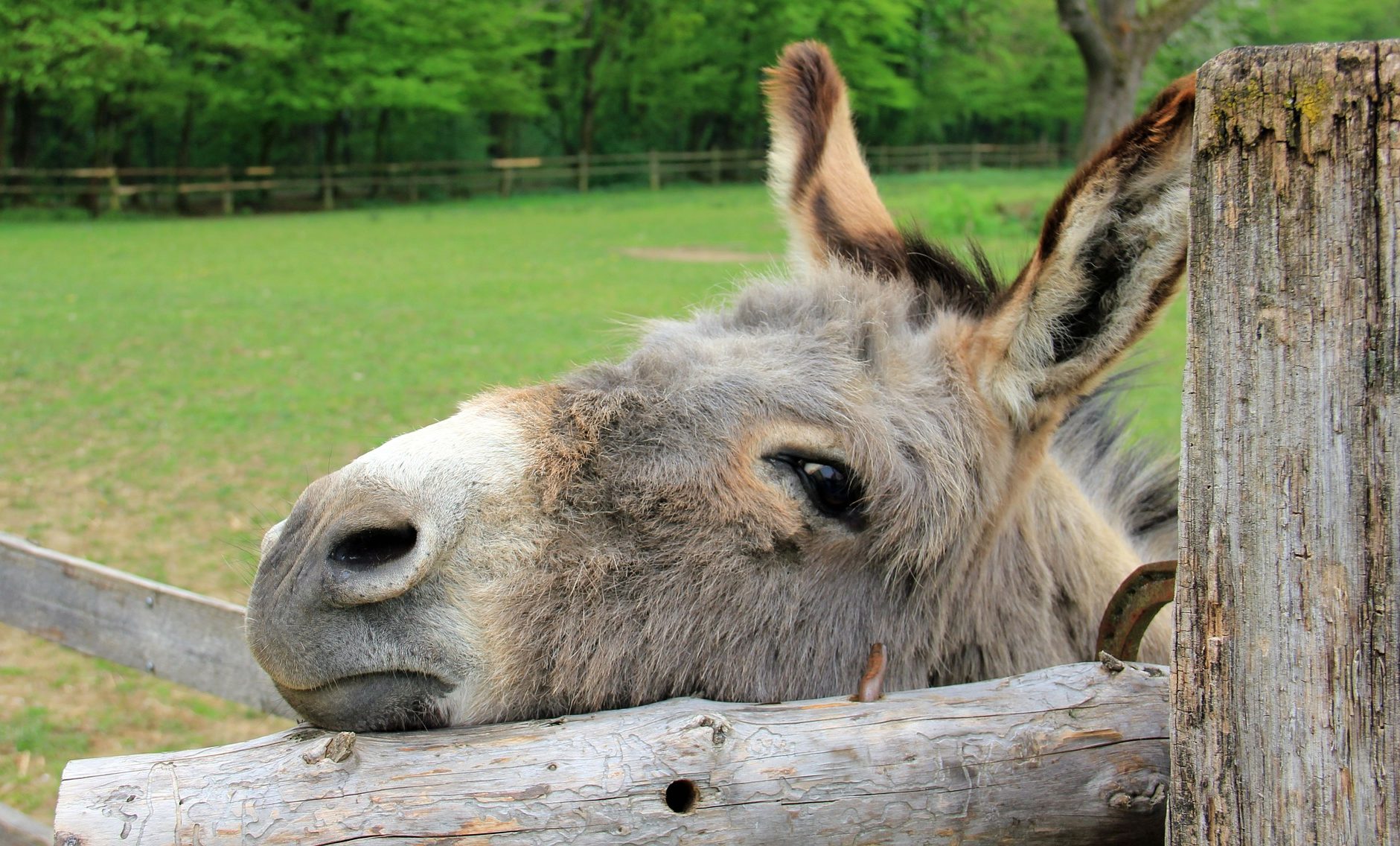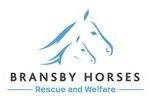Donkeys are amazing creatures. They’re strong, affectionate and mischievous. They bring a great deal of love into their owner’s hearts, but there are a few things you need to know if you are considering adopting one to join your family.
Here are the top ten things any donkey owner should know to have a happy and healthy donkey for many years to come.

1. Donkeys aren’t waterproof!
Their coats are fine and wiry and designed to keep them cool in the hot desert climate from where they originate. During particularly cold and wet weather, they need access to shelter with a deep bed so they can snuggle up and be nice and cosy.
If you choose to rug your equine, Donkeys are narrow in the chest and the rain and cold can seep under their rugs.
Though not as widely available as other rugs, special rugs for your braying friend can be found with an internet search. Donkey rugs are sized in a very special way and are colour coded rather than in a size measurement.
2. Donkeys are hardy, but they can get poorly just like any other animal.
They have a very high pain threshold and often you can’t tell that they are struggling until an illness or ailment is in its advanced stages. It is important to monitor them for any slight behavioural changes or if they become lethargic.
Donkeys adore ginger biscuits so if they refuse one rather than gobbling it up, this could be a sign!

3. Donkeys are creatures of habit.
They require routine to live a relaxed life. Donkeys seem to have a built-in watch and they always know what time it is – be it feeding time, turn-out time or play time.
This requires a great deal of commitment from their owners in order to ensure they have a happy herd and reap the rewards of the affection these animals can offer.
4. Donkeys can get fat.
A donkey will store any excess fat on the top of its neck and this is a good way to tell what body condition your friend is in. If the fat becomes too much, their neck can ‘flop over’. Even when they lose their weight, their neck will remain in this way for the rest of their life.
You can keep their weight in check by ensuring you are feeding them right. Grass is typically a little too rich for donkeys so it is important to keep the grass you have for grazing minimal.
If they need extra feed, barley straw is fantastic forage for this breed of equine. Hay can be too rich as a regular feed but can be fed in small quantities if they are to be kept in for a prolonged period, such as in the winter.

5. Donkeys can live for up to 50 years!
Donkeys have a much longer lifespan than some think and this needs to be considered before committing to giving a donkey a home.
6. Donkeys are prone to Seedy-toe.
Seedy toe is when the laminae of the hoof come away from the hoof wall. This leaves an open cavity where stones, dirt and bacteria can be caught and cause extreme discomfort and possible infection.
7. Donkeys aren’t too fussy what they sink their teeth into!
It is important to choose your bedding wisely, as they will eat shavings, wood pellets and straw! Sand is the most natural bedding for a donkey as it mimics their natural environment (and doesn’t taste very nice!).
Many people will provide their donkeys with tree stumps and logs that they can gnaw on – this keeps them entertained and stops them destroying your stable doors or fencing!
8. Donkeys can get depressed.
By nature, donkeys will bond with a companion for life, known as ‘pair-bonding’. If left alone, donkeys can become severely depressed and even stop eating. This can cause many medical problems as well as behavioural issues. It is important that donkeys should always be adopted in pairs.
If one companion passes away, the remaining donkey should be allowed to investigate their companion’s body and understand the loss. This will help them to deal with the situation and help reduce the risk of depression.
9. They are very noisy!
A donkey’s bray can be heard up to 3 kilometres away and they aren’t shy about being vocal. If you live in a built-up area, have close neighbours or are a light sleeper, donkeys perhaps aren’t for you!
10. Donkeys have a high metabolic rate.
In comparison to their equine relatives, such as horses, donkeys have a very high metabolic rate and burn off calories and medication quickly. If you have a donkey with a condition and they require medication, they may need this twice a day rather than just the once in order to keep them comfortable (though it is important to follow the advice of your vet). This can be costly and must be considered thoroughly.
Donkeys are complex creatures and there are many other things to consider from medical conditions such as sarcoids, colic and laminitis, to special diets, routine care and specific behavioural traits of the breed.

They are fascinating creatures and can provide a lifetime of love, affection, loyalty and companionship. When managed properly, they can be a joy to own and the rewards of ownership can far outweigh the considerations outlined above.
For more advice on donkey care, the National Equine Welfare Council is a fantastic source of information and the Bransby Horses advice line on 01427 787369 is open from 08.30am-4.30pm, Monday to Friday.
